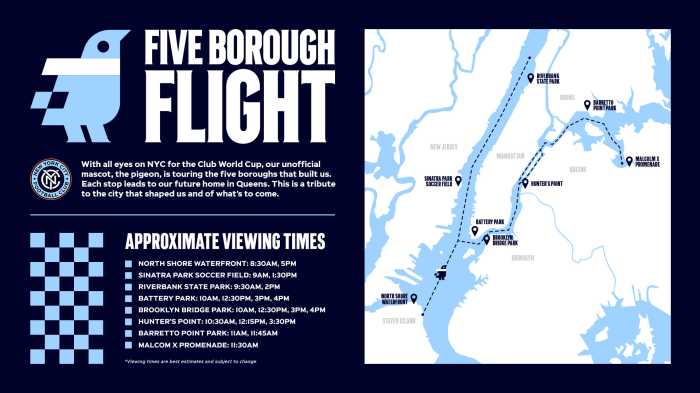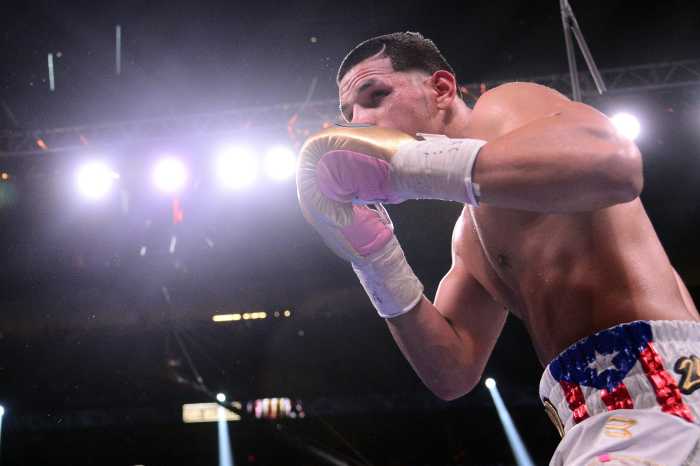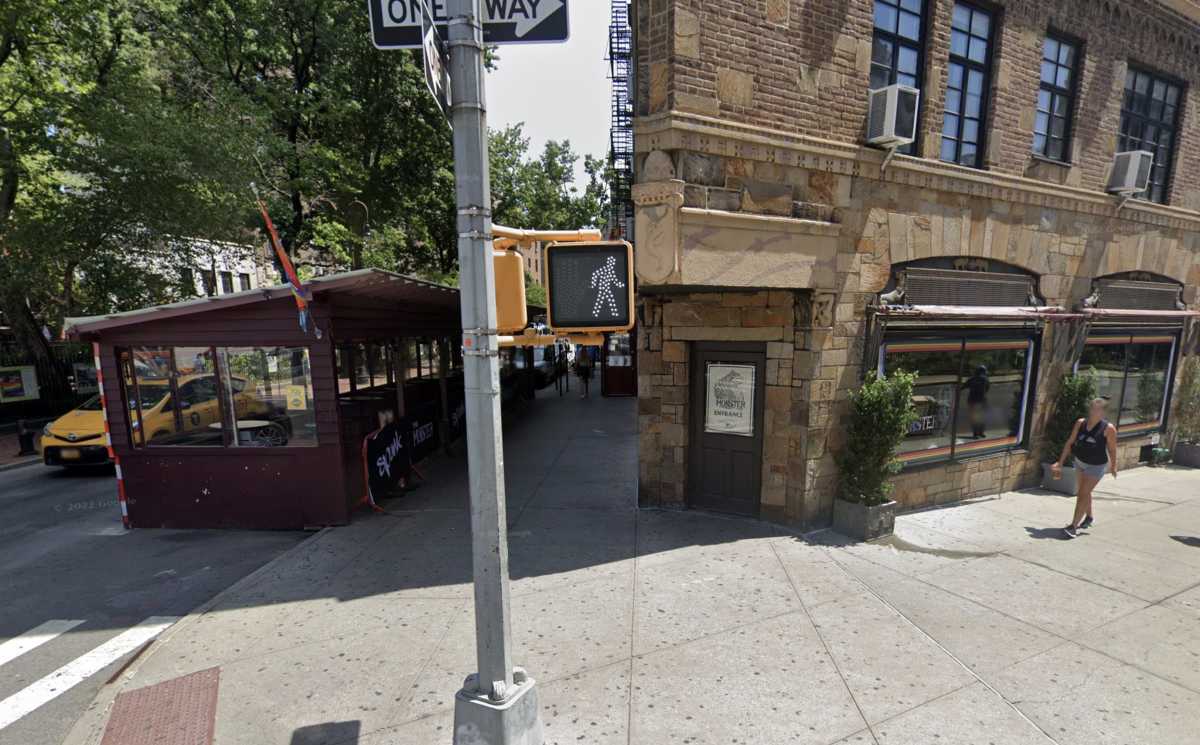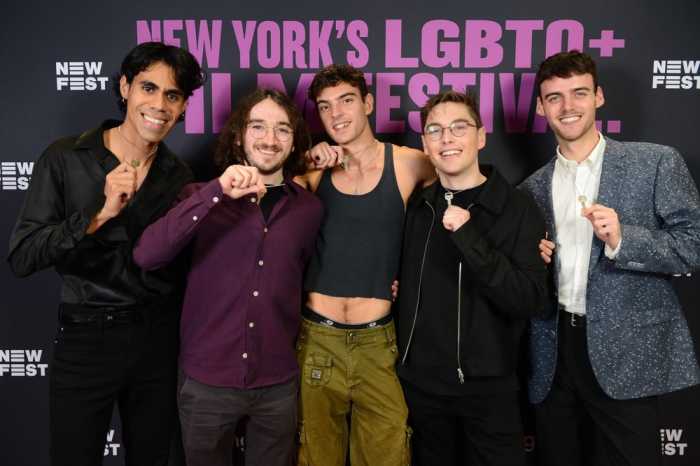Muhammad Ali, the heavyweight champion of hyperbole and showbiz as well as prizefighting, who came to be called the most famous human on the planet, died Friday night at an undisclosed hospital in the Phoenix area after a brief hospitalization for a respiratory problem, according to a statement released by his family. He was 74.
He had been hospitalized several times the past few years, including recent bouts with a urinary tract infection and pneumonia. His only public appearances in the past eight months, when he was noticeably frail, were at a Sports Illustrated tribute in his honor last October, joined by former ring rivals Larry Holmes and George Foreman in Ali’s Louisville, Kentucky, hometown, and an April 9 celebrity event to raise funds for Parkinson’s disease near his Scottsdale, Arizona, residence.
Since being diagnosed in 1984 with Parkinson’s, a degenerative disorder believed to have some relation to head trauma, Ali had been mostly out of the spotlight and virtually speechless—an incongruous reversal for the loud, boastful jester never at a loss for words during his vivid boxing career.
Ali called himself “The Greatest,” with a face “so pretty,” he said, it proved he was king of his often brutal sport. Inspired by the blatant self-promotional skills of flamboyant professional wrestler “Gorgeous George’’ Wagner, Ali raised public performance — athletically and verbally — to a high art, predicted his own victories, often in verse, and backed up his claims in a string of fights considered the most significant in the sport’s history.
His three showdowns with principal adversary Joe Frazier between 1971 and 1975 — the first still referred to as “the Fight of the Century” and the third labeled by Ali “the Thrilla in Manila” — and his 1974 “Rumble in the Jungle” against then-champion Foreman, increased boxing’s financial and entertainment clout exponentially as it cemented Ali’s celebrity. According to a 1993 Associated Press survey, over 97 percent of U.S. citizens over 12 years of age cited Ali and Babe Ruth as the most recognizable athletes (dead or alive) in America.
He brought to boxing the “Ali Shuffle,” a showoff burst of dancing feet executed mid-round; the counterintuitive “rope-a-dope,” provoking Foreman to punch himself out while Ali appeared to cower against the ropes, only to spring to life late in the bout; and the memorable “float like a butterfly, sting like a bee” description of his iron-fist-in-gossamer-gloves style.
Everything about Ali felt original, not the least his contradictory status: Vilified for refusing military induction during the Vietnam War, but later embraced as a cultural icon when he lit the flame for the 1996 Atlanta Olympics; dismissed as a loudmouth who belittled opponents, sometimes in odd racial terms, but credited with prompting Martin Luther King Jr. to speak out against U.S. involvement in Vietnam; widely ridiculed for joining the Nation of Islam and changing his name (from Cassius Clay) shortly after winning his first heavyweight title in 1964, but eventually championed as a humanitarian and global goodwill ambassador.
Ali’s star power grew to such a level that, even in the grip of Parkinson’s late in life — unsteady on his feet and mum — he was trotted out on big occasions by organizations banking on his potential impact. The New York City group bidding for the 2012 Summer Olympics flew Ali halfway around the world, to Singapore, in 2005 for International Olympic Committee members to see him on the day they voted to choose a host city. (Ali never spoke, and London won the election.)
Ali was the subject of movies and books, including the 2006 volume “Ali Rap,” strictly a compilation of his quotes, and noted for his rhyming ditties. Typical was his doggerel prior to his 1962 bout with aging old champ Archie Moore, who was 46 at the time:
Archie’s been living off the fat of the land.
I’m here to give him his pension plan.
When you come to the fight don’t block the door,
’Cause you’ll all go home after round four.
Moore indeed lost in the fourth round. Before the 1974 Rumble in the Jungle, Ali warned:
If you were surprised when Nixon resigned,
Just watch what happens when I whup Foreman’s behind!
Foreman was knocked out in the eighth of the scheduled 15-rounder.
In must-see television exchanges, Ali squared off against blustery, cocksure sportscaster Howard Cosell, another man of many words and considerable ego. (Veteran sportswriter Dave Kindred wrote a 300-page book, “Sound and Fury,” in 2006 on the quirky Ali-Cosell relationship.)
As an amateur, Ali won two national Golden Gloves titles and the 1960 Olympic light heavyweight title in Rome, and had reached a form of outrageous popularity — “The Louisville Lip” — by the time he dethroned scowling heavyweight champ Sonny Liston in 1964, then won their 1965 rematch with a first-round knockout so stunning there was talk of a “phantom punch.”
Of the second fight, officially only one minute long, Newsday’s Bob Waters both asked and answered the question that immediately was raging through the boxing world by beginning his deadline report, “Was it a fake? It was not.”
Waters wrote, “It seemed that the race has just started when it ended. Ali had his back to the ropes when he feinted with his left glove and brought the right hand across and downright flush on Liston’s jaw. Liston fell backward slowly. He hit the canvas with the seat of his pants, then the small of his back, his shoulders and his head. It seemed to be almost in slow motion.”
Just three years later, Ali claimed conscientious objector status — “I ain’t got no quarrel with them Viet Cong,” he famously said — and was arrested for draft evasion, stripped of his boxing title and boxing license and didn’t fight for nearly four years while his appeal wound its way to the U.S. Supreme Court, which eventually threw out the case.
He returned to boxing with victories over familiar pugilists Jerry Quarry and Oscar Bonavena, ratcheting up anticipation for the 1971 title fight with Frazier at Madison Square Garden to a level not seen since the 1938 Joe Louis-Max Schmeling rematch that was heavy with political implications.
Boxing’s premier historian, Bert Sugar, during an interview with Newsday shortly before his death in 2012, looked back on the March 8, 1971 Ali-Frazier duel as a requiem for all heavyweights — the last of the sport’s kind of happening. “It was not just a fight,” Sugar said. “It was an event that encapsulated the Vietnam conflict, with Ali on one side and Frazier adopted — for whatever reason, he didn’t know — by the other side, the first time two undefeated heavyweights fought.”
Beyond the contrasting boxing styles, the fighters’ dissimilar personalities and wild promotional hoopla were complicated links to race and politics. Ali himself fueled some strange interpretations, somehow casting Frazier — in a showdown between two black men — as “the white man’s champion” and an “Uncle Tom.”
Sugar, who was there, recalled how it was a “seen and be-seen crowd,” with a celebrity quotient so high — Frank Sinatra, Burt Lancaster, Diana Ross — that former Vice President Hubert Humphrey “was sitting in the third balcony; he couldn’t get a better seat. People were coming into the Garden in their white hats and floor-length sable coats. And those were the men. The women were in hot pants.”
What the spectators witnessed was an exhausting 15-round exchange of punishing blows that sent both men to the hospital. Ali lost by decision, but regained the title against Foreman in the Kinshasa, Zaire, rumble in 1974; defended his title three times; retired; returned at 36 to become the first three-time heavyweight champ with a 1978 victory over Leon Spinks; retired again and returned again in 1980 to be pummeled by Holmes. One month short of his 41st birthday, Ali lost a final fight to Trevor Berbick. His professional record was 56-5, with 37 knockouts.
Cassius Marcellus Clay Jr., was born Jan. 17, 1942 in Louisville, the second son of Cassius Sr., a painter of billboards and signs, and Odessa O’Grady Clay, a domestic. His first sounds, as a baby, were “Gee-Gee,” prompting his mother to call him “G-G” the rest of her life and leading Ali to claim he had been trying to say “Golden Gloves” from infancy.
He said Louisville policeman Joe Martin, who trained young boxers in his spare time, had directed him into the sport as a 12-year-old after the young Clay’s bicycle was stolen and the lad resolved to “whup whoever stole it.” Six weeks later, he fought — and won — for the first time. By the time he turned pro, backed by 11 wealthy white Louisville businessmen, he had won 100 of 105 bouts.
In a news conference following his gold medal victory in Rome, years before he had ditched Cassius Clay as “a slave name,” Ali had been asked by a Soviet journalist how he felt, as a black man, being denied service in some U.S. restaurants.
“Russian,” the champ shot back on that occasion, “we got qualified men working on that problem. We got the biggest and the prettiest cars. We get all the food we can eat. America is the greatest country in the world, and as far as places I can’t eat goes, I got lots of places I can eat — more places I can than I can’t.”
But on his return home, returning from a function at the office of the Louisville mayor, Clay and a friend were turned away from a whites-only restaurant, and he wrote in his book, “The Greatest,” that “whatever illusions I’d built up in Rome as the All-American Boy were gone.” He said he immediately threw his gold medal into the Ohio River at the Kentucky-Indiana border.
Ali is survived by his fourth wife, Lonnie, whom he had known since 1964 in Louisville and married in 1986. His three previous marriages — to Sonji Roi, Belinda Boyd (who later took the name Khalilah Ali) and Veronica Porsche — ended in divorce. Ali fathered nine children, two in extramarital relationships.
Of his seven daughters, Laila (whose mother is Veronica Porsche), boxed professionally for eight years before retiring in 2007, undefeated in 24 bouts, in spite of Ali’s 1978 comments against allowing women in the sport. In June 2001, in a bout promoted as Ali-Frazier IV, Laila Ali defeated Joe Frazier’s daughter, Jackie Frazier-Lyle, by decision.
Ali was named the greatest heavyweight champion in history by Ring Magazine in 1987, inducted into the International Boxing Hall of Fame in 1990 and awarded the Presidential Medal of Freedom, the nation’s highest civilian honor, by George W. Bush in 2005. In 2002, his star was embedded on the wall of the theatre complex rather than Hollywood’s Walk of Fame because, Ali said, “I didn’t want my star to be on the sidewalk because I didn’t want anybody walking on it.”
Asked in 1974 how he would like to be remembered by David Frost, the English-born TV host known from his interviews of prominent figures, Ali responded, “I’d like them to say . . .
“He took a few cups of love.
He took one tablespoon of patience,
One teaspoon of generosity,
One pint of kindness.
He took one quart of laughter,
One pinch of concern.
And then, he mixed willingness with happiness.
He added lots of faith
And he stirred well.
Then he spread it over a span of a lifetime,
And he served it to each and every deserving person he met.’’




































